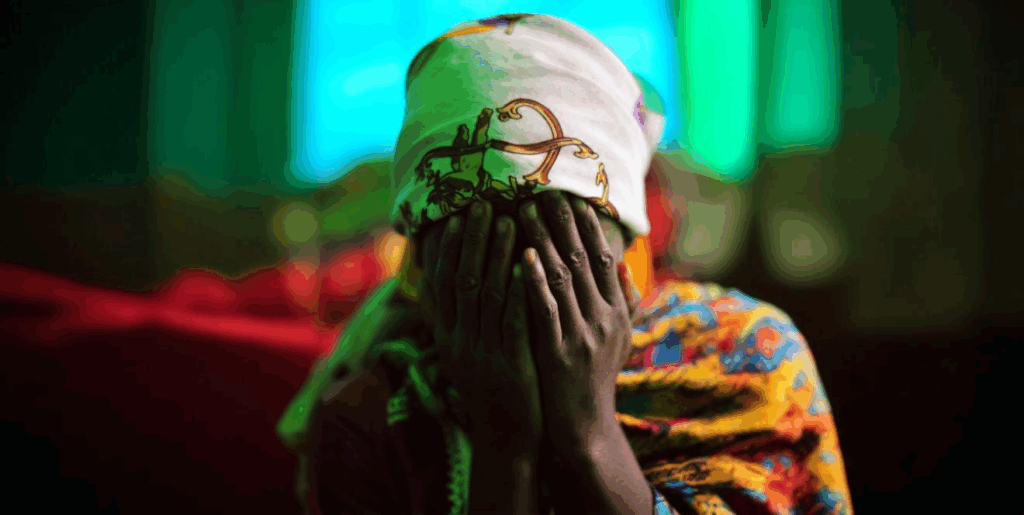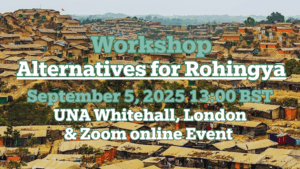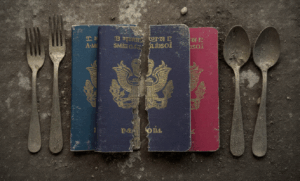
This April marked the extension of Sudan’s brutal civil war into its third year. According to the chair of the Independent Fact-Finding Mission by the UNHCR, Mohamed Chande Othman, it is far from over. The UN has already claimed the conflict as the world’s “largest humanitarian crisis” with the forced displacement of 15 million Sudanese, the deaths of tens of thousands of civilians, the weaponisation of humanitarian aid, the outbreak of deadly, yet preventable, diseases like cholera and the systemic practice of sexual violence by armed agents.
The term “sexual violence” refers to a broad category of abuses like rape, sexual torture, mutilation, sexual slavery, enforced prostitution and unwanted pregnancies. This phenomenon can occur during both peacetime and wartime and is often used as a weapon of war by warring parties to instill fear into their victims. While sexual violence affects people across genders and ages, women and girls bear a disproportionate burden.
Sudan is no exception to this rule. In the Women Peace and Security Index for 2023, Sudan ranked 164th out of 177 countries, a low, yet unsurprising position. While the democratic revolution of 2018 was a source of optimism for Sudanese women, the recent descent into violence has dashed the hopes of many. Currently 4.2 million women and girls are estimated to be at risk of sexual violence. This statistic is supported by distressing reports of widespread sexual violence perpetrated by militants from both principal warring groups; the Rapid Support Forces (RSF) and the Sudanese Armed Forces (SAF).
However, owing to ethnic divisions in Sudan that are currently being exacerbated by the conflict, the sexual violence experienced by Sudanese women and girls takes on a particularly grim, racial dimension. The racism that victims encounter is deeply rooted in Sudan’s history as a slave raiding and trading state where a binary racial division between “Arab” and “non-Arab”, or “Black”, peoples was consolidated.
British colonial rule preserved this oversimplified racial divide, as well as the hierarchies associated with it, and a series of oppressive Arabization policies post-independence reinforced it further. This has led to the development of a strongly racialised and exclusive “Arab” national identity which, combined with a failure to address its racist past, has allowed ethnic tensions in Sudan to escalate unchecked.
A report by Human Rights Watch details the sexual slavery experienced by “non-Arab” Sudanese women and girls, particularly from Nuba communities, by “Arab” RSF fighters and affiliated gunmen. These women and girls were victims of harrowing gang-rapes and kidnappings. Once relocated to an RSF fighter base in Dibeibat, they were “held in conditions of enslavement”, chained together in kneeling positions, only fed flour and water, and raped at will by RSF soldiers.
The report also contains personal testimonies from women describing the racial slurs directed at them by RSF fighters during these attacks. A report from OHCHR addresses some conclusions from the Fact-Finding Mission and highlights that this widespread sexual slavery may qualify as both a war crime and, if implemented systematically on a large scale as in the case of Sudan, as a crime against humanity.
However, such ideologically and racially charged sexual violence towards non-Arab communities in Sudan predates the outbreak of this recent civil war. In 2003 during the Darfur Genocide, the mass rape of non-Arab women, particularly from Fur, Masalit and Zaghawa communities, was reported. Despite numerous investigations into the consequences of such brutal sexual violence along ethnic lines during wartime, attempts to fully resolve this issue during post-war periods of relative peace have failed, as demonstrated by the recent spike in attacks after April 2023.
Cases like that of the Democratic Republic of the Congo (DRC), demonstrate that inaction towards human rights violations during times of war, specifically sexual violence, can have long-lasting, detrimental effects on society. In the eastern parts of the DRC, where the majority of the recent conflict has unfolded, sexual violence has become endemic. Some experts talk of a “rape epidemic” in which the sexual violence perpetrated during periods of conflict has infiltrated the domestic context and societal gender relations more broadly, leading to an increase in gender-based violence, both during civil war and peace-time.
Furthermore, discriminatory social norms and stigmas have prevented dialogue and justice within communities, in some cases “normalising” rapes to the extent that the women and girls are seen to “provoke” them. Such findings demonstrate the long-term, and often generational, impacts of leaving crimes of sexual violence during war unaddressed.
While the cases of Sudan and the DRC differ in many crucial ways, there are undeniable lessons from the suffering of Congolese women and girls that are relevant to their Sudanese counterparts, namely, that the root causes of sexual violence should be addressed before such brutal practices become embedded in society. The European Parliament has emphasized the importance of educational programmes and training to eliminate stereotypes among public agents as a strategy to tackle sexual violence post-war. Similarly, a UNIDIR report that uses evidence from the Sahel draws attention to the importance of long-term norm change initiatives when addressing sexual violence in affected communities.
Although tackling the root causes of sexual violence post-war remains an enormous task, certain organisations are putting these recommendations into practice. Geneva Call, for example, focuses on engaging members of armed groups and de facto authorities in dialogue and training in adherence to international humanitarian norms. Without confronting the underlying attitudes and norms that fuel sexual violence, as the case of the DRC shows, women and girls will remain at risk. This long-term, resource-intensive work within communities is central for ensuring sustainable peace and protecting survivors’ rights and wellbeing.
While it is important to shed light on different post-conflict reconstruction approaches, one reality remains: the war in Sudan continues. Any meaningful behavioural change efforts that protect those at risk of sexual violence cannot be implemented until the violence ends. Sudan is on the brink of being classified as a failed state while the international community witnesses the biggest drop in international aid ever recorded and an apparent total absence of political will. Governments and international organisations are turning their backs on the conflict in Sudan, a conflict they surely cannot afford to ignore.
About the Author: Amaia is a European Social and Political Studies student at University College London who volunteers with UAI. Specialising in the field of comparative politics, she is particularly passionate about understanding the processes that lead to politically motivated violence. For more of her work on Sudan, please refer to her previous article on the vital work of mutual aid groups on UAI’s website: “Mutual aid groups in Sudan: How can you get help to starving families?”
The opinions expressed in this blog are those of the author and do not necessarily represent the views of United Against Inhumanity (UAI).











